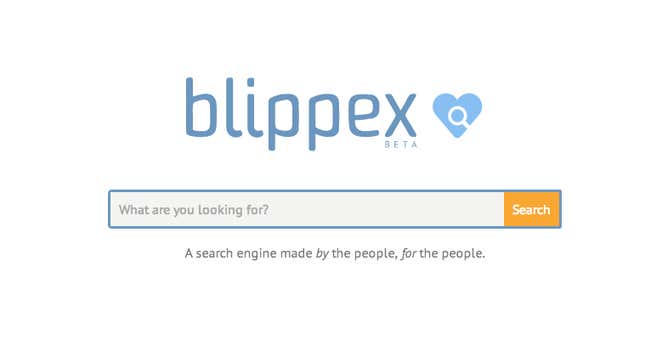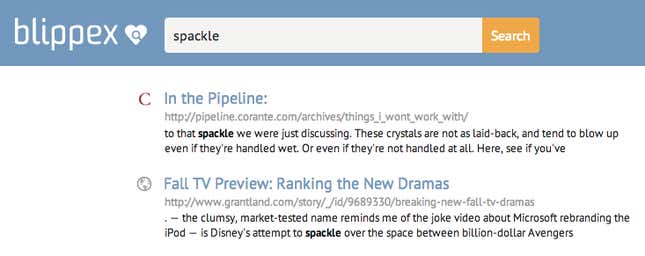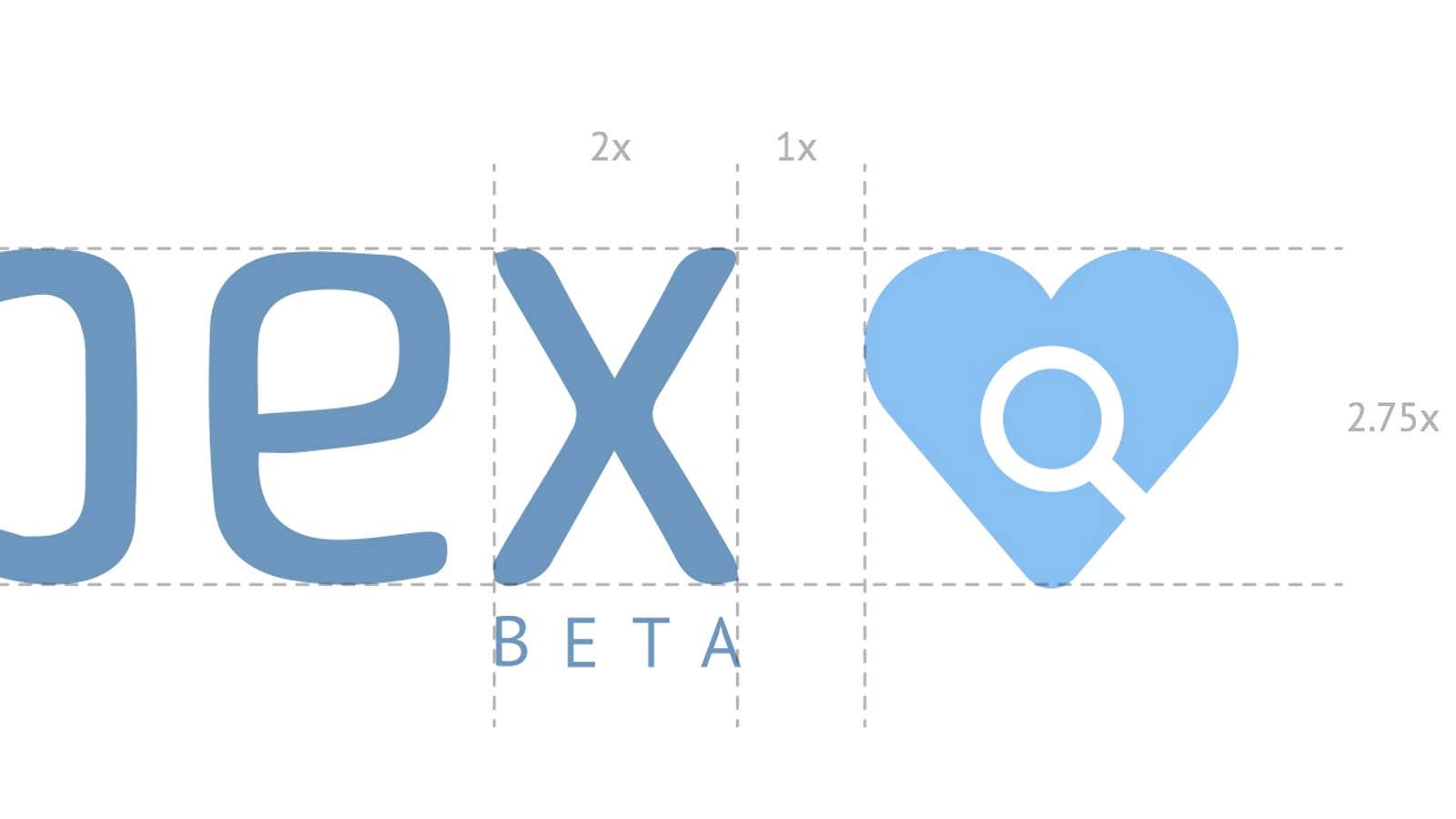It’s hard to build a really new search engine. Microsoft has spent enormous resources trying to convince people that Bing’s search results are just as good as Google’s. Bing has won market share, but not at Google’s expense. Other Google alternatives like DuckDuckGo are growing rapidly because they pledge to protect people’s privacy.
But the problem for most competitors to Google is that they try to imitate Google. ”We thought it strange that to compete, you had to have the same search results as them,” says Max Kossatz. “I think that’s why there’s been no innovation in search in over 10 years.”
When Kossatz and his co-founder Gerald Baeck, two Austrians living in Berlin, started building their new search engine, Blippex, their first tagline for it was something like “The Wikipedia of Search.” They ditched that for copyright reasons, but it sums up their approach nicely: Blippex is built by its own users. And this makes its search results radically—and perhaps interestingly—different.
One of Blippex’s key selling points is that Kossatz and Baeck are fanatical about privacy. Though Blippex constructs its search results on the basis of data gathered from its users, it does it in a way that’s anonymous and untraceable to any individual Blippex user. This obsession with privacy allows Blippex to rank pages—i.e., decide which pages to show people—with an algorithm that Google can’t match, because if Google gathered the data that Blippex does, users would find it unacceptably creepy.
DwellRank vs. PageRank

Google’s base algorithm is something called PageRank, named after Google founder Larry Page. PageRank evaluates the relevance of a site according to how many other pages on the web link to it. Blippex’s algorithm, called DwellRank, decides relevance based on how long users spend on a site and how many times Blippex users have visited it. Researchers at the University of Massachusetts Amherst have, independently of the Blippex team, established that the amount of time someone spends on a web page or document is, not surprisingly, a pretty good measure of how important and relevant it is (pdf).
Blippex gets this information by having you download a plugin for your web browser. This plugin measures how long you spend on each site and sends the information to Blippex, anonymized—that is, stripped of any information that could identify you.
Google cannot use anonymized data because its entire business, advertising, is built on personalizing search results and ads to make them more effective. That requires knowing all kinds of other information about its users, which would make them traceable. Google’s Chrome web browser does not send Google the kind of information Blippex’s plugin does; it used to when Chrome was launched, but the company almost immediately stopped, amidst privacy concerns, says Kossatz. (Google does look at which links people click on, on its own pages of search results, but that data is necessarily limited only to what Google is already showing people, which is quite different from the sum of their web browsing history.)
Building a search engine one site visit at a time

However, a consequence of this is that the only pages in Blippex’s search index are those its own users have visited. It has only two million pages, compared to the tens of billions of pages and trillions of links that have been indexed by Google. (There are many more links than pages on the web because most are spam, duplicates, or unhelpfully different from one another.)
The result is a search directory that’s currently only as good as the (mostly tech-focused) people who are early adopters of new web services. That means it’s great for things related to computer programming, pretty good for recent events, and nearly useless for more obscure search terms.
But Kossatz compares the current state of Blippex to Wikipedia in its early days. “At the beginning, it was like ‘Why should I write something on Wikipedia?’ But then, if someone started an article, gradually it got better,” says Kossatz.
Like Wikipedia, Blippex will only get better if it can attract enough people. Unlike Wikipedia, all a person has to do to make Blippex better is install Blippex’s browser extension. Once installed, every page a person visits is essentially a vote for that page in Blippex’s search index, with longer visits counting for more—hence, DwellRank.
The world’s most user-ignorant search engine
Kossatz and Baeck are continually thinking about how to make Blippex know even less about its users. If Blippex doesn’t have a piece of data, it can’t ever be stolen by hackers or subpoenaed by a government. To that end, they’ve made Blippex’s browser plugin open-source, so that anyone can examine its code and verify that it’s not grabbing information the team says it isn’t.
They’re also about to make Blippex browser plugins communicate with each other in a peer-to-peer network, rather than directly with Blippex’s servers. It’s the same technology that Bittorrent uses to pass (usually illegal and pirated) content between computers. The way Blippex works now, it’s at least plausible that the company could be gathering the unique numerical addresses of computers sending browser history data to the company. But after that data is bounced between a few different browser plugins, it becomes untraceable.
But is it any good?

At this point, Blippex’s search results are pretty rough, but at least they’re different than Google’s, and often significantly different.
Anyone who installs the Blippex browser extension can display Blippex results above Google’s. That makes comparing the two an easy, low-investment experiment. Whether or not the site can gain enough momentum to be a real alternative to Google is the question on which its ultimate fate turns. Blippex is fewer than three months old, so it’s early days yet.
